Photographs: Courtesy Gud2Eat.com Courtesy Gud2Eat.com
The benefits of consuming these fruits are certainly far-reaching, from adding fibre to your diet to protecting you from cancer.
We're always hearing about how imperative it is to eat raw fruits, but how much do we actually know about their positive effect on overall wellness?
In the following pages, we tell you what you need to know about each.
Apples
One cup of apples (138 grams) provides about 81 calories and contains about 21 grams of carbohydrates and 3.7 grams of fibre.
Apples contains flavonoids, quercetin, catechin, phloridzin and chlorogenic acid that protect the heart as they are potent antioxidants.
Flavonoids prevent excessive inflammation, regulate blood pressure, prevent too much clumping together of blood platelets; both soluble and insoluble fibre in apples helps lower LDL (bad) cholesterol levels.
Eating an apple daily reduces the risk of lung cancer, colon cancer and breast cancer. Red apple peel also contains many antioxidants that have cancer-fighting (antiproliferative) properties. Phytochemicals in apples (hydroxycinnamic acids, D-glucaric acid, oligomeric procyanidins) help in preventing mutations, promoting the demise of cancerous growths and limiting cancer spread.
Bananas
Image: BananasPhotographs: Courtesy Gud2Eat.com
One banana (118 grams) provides about 108 calories and contains about 27 grams of carbohydrates, 1.2 grams of protein and 2.8 grams of Fibre. It also contains Vitamin B6, and Vitamin C, minerals manganese and potassium.
The rich potassium content is essential for maintaining normal blood pressure and heart function. The fibre content lowers cholesterol, which also protects the heart.
Bananas Have antacid effects -- they maintain electrolyte balance and protect against stomach ulcers and ulcer damage. Compounds in the fruit help create a thicker mucus barrier, thus protecting against effects of stomach acids.
The potassium found in bananas also counteracts increased urinary calcium loss caused by high-salt diets, thus preventing bones from thinning out at a fast rate.
Cranberries
Image: CranberriesPhotographs: Courtesy Gud2Eat.com
Half a cup of cranberries (47 grams) provides about 23 calories and contains about six grams of carbohydrates and 1.9 grams of fibre. Cranberries also contain Vitamin C, Vitamin K and Manganese.
These fruit protect from urinary tract infections and are anti-viral and anti-bacterial. They contain quinic acid, which prevents calcium and phosphate ions from reacting to form kidney stones. People with recurring kidney stones will benefit from drinking cranberry juice daily.
Cranberries are heart-healthy, improving blood vessel function and protecting against heart attack or stroke. Pterostilbene, a powerful antioxidant compound found in cranberries helps lower cholesterol.
They also help prevent cancer. Phytonutrients in cranberries protect from breast cancer and their proanthocyanidins are toxic to cancer cells, blocking tumour growths in the lung, prostate, breast and leukemia cancer cells.
Grapes
Image: GrapesPhotographs: Courtesy Gud2Eat.com
One cup of grapes (90 grams) provides about 61 calories and contains about 16 grams of carbohydrates and 0.9 grams of fibre.
The fruit also contains Vitamin B1, Vitamin B6, Vitamin C and minerals manganese and potassium.
Resveratrol in grapes keeps the heart muscle healthy by increasing blood flow to the brain; it also lowers the risk of Alzheimer's and helps protect against prostate, lung, liver and breast cancer by inhibiting events that lead to cancer initiation, promotion, and progression.
In addition, saponins and pterostilbene in grapes help lower cholesterol.
Purple grape juice and red wines are anti-bacterial.
Kiwifruit
Image: KiwifruitPhotographs: Courtesy Gud2Eat.com
One kiwifruit (76 grams) provides about 46 calories, containing about 11 grams of carbohydrates and 2.5 grams of fibre.
It also contains minerals copper, magnesium, manganese and potassium and potent antioxidants that are heart-healthy.
Kiwifruit is a rich source of Vitamin C and Vitamin E, which help prevent colon cancer, atherosclerosis and diabetic heart disease.
Its fibre helps keep blood sugar levels under control, thus making it a healthy snack for diabetics. The fibre also binds to cancer-causing chemicals in the colon, preventing them from damaging colon cells and reducing the risk of colon cancer.
Kiwifruit reduces the severity of asthma symptoms. Vitamin C-rich, it delivers protective effects against respiratory symptoms associated with asthma such as wheezing. Children who eat kiwifruit and citrus fruits regularly are less likely to have respiratory-related health problems including wheezing, shortness of breath or night coughing.
Eating three to five servings of the fruit a day protects your eyes against oxidative damage and senior citizens from macular degeneration.
Oranges
Image: OrangesPhotographs: Courtesy Gud2Eat.com
One orange (130 grams) provides about 62 calories, 15.3 grams of carbohydrates, 1.2 grams of protein and 3.1 grams of fibre.
The fruit is a rich source of Vitamin C and also contains Vitamin A, thiamine, folates, calcium, and potassium; its 170 different phytonutrients and 60+ flavonoids have anti-inflammatory, anti-tumour and blood clot-inhibiting properties and are strong antioxidants.
Oranges are heart-healthy -- their potassium content helps lower blood pressure, protecting against stroke and cardiac arrhythmias. What's more, polymethoxylated flavones (PMF) found in citrus fruit peels lower cholesterol more effectively than some prescription drugs, and without side effects.
Limonin in oranges and other citrus fruits help fight mouth cancer, skin cancer, lung cancer, breast cancer, stomach cancer and colon cancer. Limonin is a potent anti-carcinogen that may continuously prevent cancerous cells from proliferating.
Oranges also help prevent kidney stones. They help increase urinary pH value and increase citric acid excretion, reducing the risk of calcium oxalate stones forming.
And a daily glass of freshly squeezed orange juice can significantly lower your risk of developing rheumatoid arthritis.
Papaya
Image: PapayaPhotographs: Courtesy Gud2Eat.com
One papaya (304 grams) provides about 118 calories, contains about 30 grams of carbohydrates, 1.8 grams of protein and 5.4 grams of fibre.
It is a rich source of heart-healthy nutrients Vitamin C, Vitamin A, folates, Vitamin E, and Vitamin K and contains potassium.
Papaya's powerful antioxidants help prevent the oxidation of LDL (bad) cholesterol, while its fibre helps reduce high cholesterol levels.
The fruit protects against colon and prostate cancer. Its fibre binds to cancer-causing chemicals in the colon, preventing them from damaging colon cells and reducing the risk of cancer. Its vitamins, beta carotene and folates are synergistic and protect colon cells from free radical damage to their DNA. The lycopene content, on the other hand, reduces the risk of prostrate cancer.
Papain in papaya reduces inflammation, reducing the severity of symptoms of conditions like asthma, osteoarthritis and rheumatoid arthritis.
Pears
Image: PearsPhotographs: Courtesy Gud2Eat.com
One pear weighs about 166 grams; it provides about 98 calories and contains 25 grams of carbohydrates and 3.9 grams of fibre.
The fruit contains Vitamin C, and Vitamin K as well as the mineral copper, antioxidants that prevent oxidative damage to cells. Vitamin C also stimulates white blood cells to fight infections.
Pear fibre binds to bile salts and carries them out of the body. Bile is essential for digestion and the body will need to use up more Cholesterol to produce bile salts -- thus, pears lower cholesterol levels.
In addition, the fibre protects against colon and breast cancer.
Strawberries
Image: StrawberriesPhotographs: Courtesy Gud2Eat.com
One cup of strawberries weighs about 144 grams, containing about 43 calories, 10 grams of carbohydrates, 3.3 grams of fibre and 0.1 grams of omega 3 fatty acids.
This fruit provides more than 136 percent of your daily requirement of Vitamin C; they also contain vitamins B2, B5, B6, B9, Vitamin K, copper, iodine, magnesium, manganese and potassium.
The phenols in strawberries provide potent antioxidant protection; phenols have heart protective, anti-cancer, anti-inflammatory properties. Overactivity of the enzyme COX leads to inflammation in rheumatoid arthritis, osteoarthritis, asthma, atherosclerosis and cancer. Phenols lessen the activity of this enzyme.
Studies state that ellagitannin in strawberries also help reduce the overall risk of cancer and their phytonutrients in particular significantly inhibit the proliferation of liver cancer cells.
They also protect against macular degeneration.
Watermelon
Image: WatermelonPhotographs: Courtesy Gud2Eat.com
One cup (150 grams) of watermelon provides about 49 calories, contains about six grams of carbohydrates and about 0.9 grams of protein.
Vitamins in the fruit include Vitamin A, Vitamin B1, Vitamin B6 and Vitamin C; minerals include magnesium and potassium.
Powerful antioxidants in watermelon help protect your heart, reducing the risk of heart disease as they prevent free radicals from oxidising cholesterol.
Watermelon also reduces damage caused in osteoarthritis and rheumatoid arthritis by neutralising free radicals.
Lycopene in the fruit has antioxidant and cancer-preventing properties and protects the DNA inside white blood cells. Lycopene helps prevent prostate cancer, breast cancer, endometrial cancer, lung cancer and colorectal cancers.
Watermelon consumption also helps reduce the severity of asthma attacks; its antioxidants help reduce the airway spasm that occurs in asthma by neutralising free radicals. Free radicals add to the severity of asthma attacks by causing airways to clamp down and close.

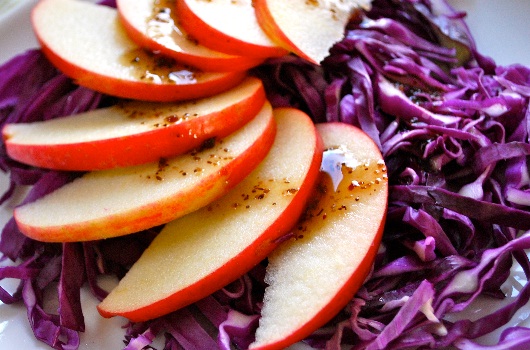
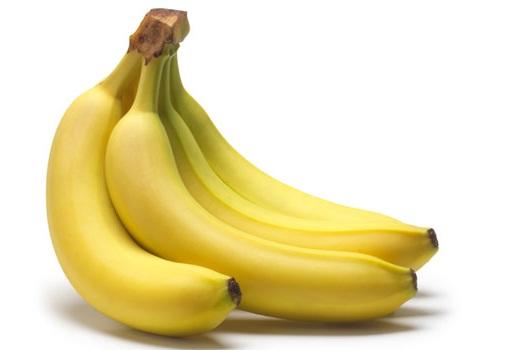

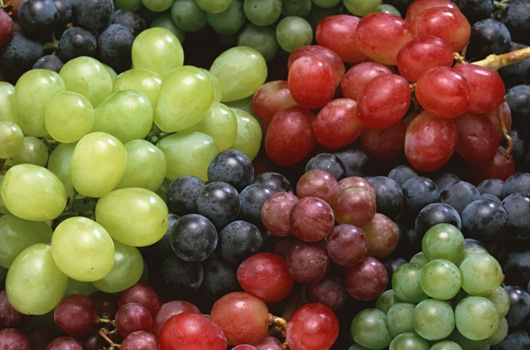
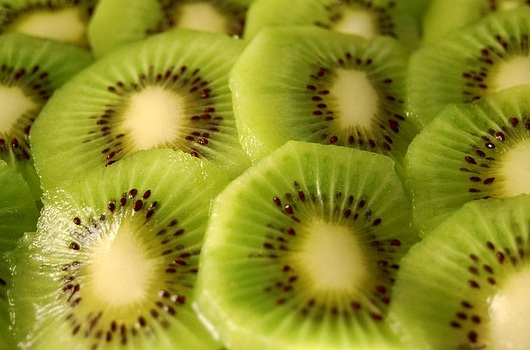
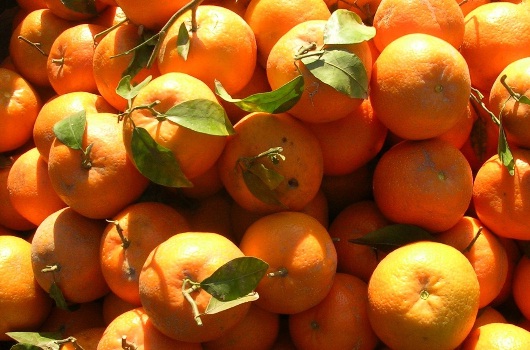
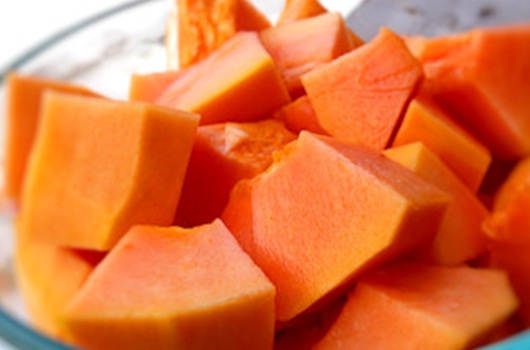
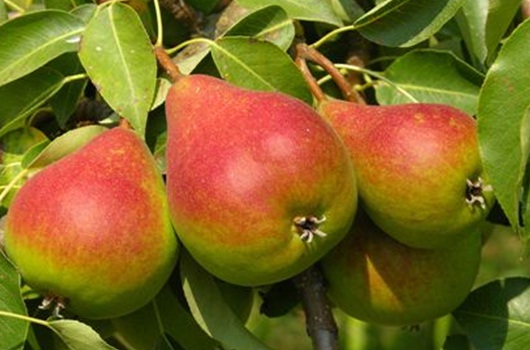
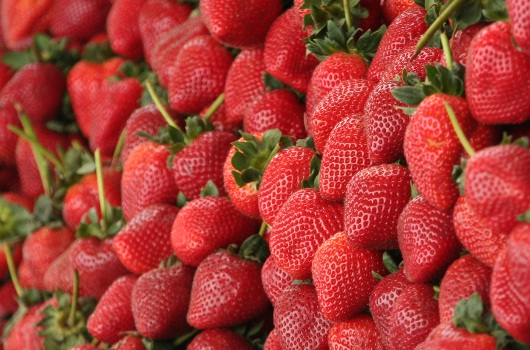
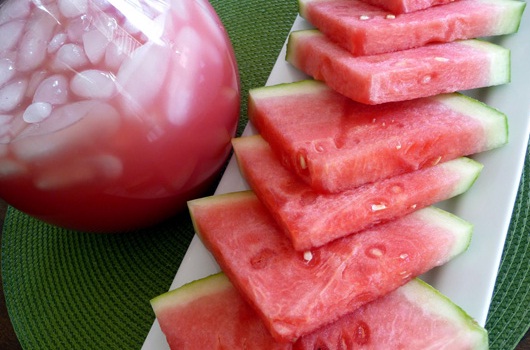
Comment
article